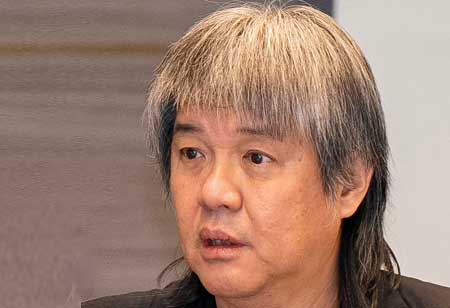

Thank you for Subscribing to Environmental Business Review Weekly Brief

Journey from Career Milestones to Community Impact
I have long held a conviction that ethical, innovative business models can tackle social inequities and environmental crises at scale. I found ways to channel my scientific training, strategic insight and unwavering belief in human dignity into initiatives that empower underserved communities and raise industry-wide standards. Over the years I had conceptualized and executed social-impact programs such as Soap For Hope™, Linens For Life™, CoffeeBriquesSM and PlasticShredsSM, initiatives designed to upcycle waste from hospitality into community livelihood solutions, while protecting the planet at the same time. The decision to align Diversey – A Solenis Company’s Creating Shared Value (CSV) programs with the UN Sustainable Development Goals (SDGs) and localize their impact evolved from both strategy and social ethos. Furthermore, the initiatives were implemented locally in collaboration with local NGOs, industry partners, government agencies and community groups. This approach ensured cultural relevance, local buy-in, context-appropriate design and capacity for long-term sustainability. By weaving SDG alignment into the very DNA of CSV via strategic leadership, local partnership, outcome metrics and continuous adaptation, we turned the company vision into direct, measurable social and environmental change in communities around the world. Empowering Communities Through Circular Solutions and Lasting Livelihoods Initiatives like Soap For Hope and CoffeeBriques go far beyond traditional recycling by embedding livelihood creation, community empowerment, and circular economy principles directly into their design. These programs shift from charity to sustainability by addressing both waste reduction and income generation. In each CSV implemented at a local site, community members are taught simple, low-tech soap and coffee grounds re-purposing techniques using machines provided free-of-charge by Diversey. Individuals and NGOs can establish micro-businesses—selling soap and coffee briquettes in markets, schools, and refugee camps. Programs are low-cost and replicable, easily adapted in new communities with local partners. Equipment and training are intentionally simple to reduce barriers to entry. Initiatives are embedded in ecosystems and programs are linked to hotels, NGOs and government agencies, ensuring steady inputs (like soap and coffee waste) and local market demand. These initiatives are successful because they intersect waste recovery, entrepreneurship, and human dignity. They are not about giving communities donations, the emphasis is on “teaching to fishˮ rather than charity. Communities gain skills, dignity, and independence. Leading with Purpose Across Borders Leadership across 254 cities in 55 countries hinges on a deep commitment to cultural sensitivity, local empowerment, and inclusive collaboration. Rather than a “one-size-fits- allˮ approach, I apply a framework grounded in co-creation, adaptive leadership, and stakeholder empathy. Our success across such a vast and varied landscape stems from his ability to blend corporate ESG vision with grassroots reality; building bridges of shared purpose across cultures, sectors and continents. I am known for my on-the-ground presence regularly visiting project sites, engaging with community stakeholders and listening before acting. Our projects unite corporates, government, NGOs and communities, each with their own priorities. Begin with a clear sense of purpose. Know why you care, who you’re trying to help, and what change you want to create. The recognition will follow the results, not the other way around. Engage local voices. Understand their culture, needs, and strengths. Your role is to empower, not impose. Community ownership ensures sustainability. Use data and insights (head), act with empathy and integrity (heart), and be hands-on and practical (hands). This combination drives real-world, scalable impact. Sustainability should create economic, social, and environmental value. Align business objectives with community upliftment. This creates lasting change and stakeholder buy- in. Do not wait for perfect conditions. Use available materials, waste, people, or partnerships. Programs like Soap For Hope, Linens For Life, CoffeeBriques and PlasticShreds started with low-cost, high-impact ideas. Seek allies across sectors like government, businesses, NGOs and local leaders. Diverse partnerships amplify resources, ideas, and reach. You will face resistance, bureaucracy and setbacks. Be persistent, adaptable and courageous. The people you’re fighting for are worth it.

However, if you would like to share the information in this article, you may use the link below:
https://www.environmentalbusinessrevieweurope.com/cxoinsight/dr-stefan-phang-nwid-987.html